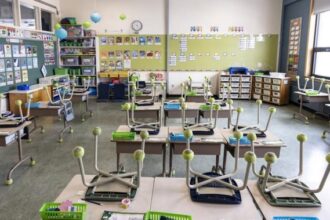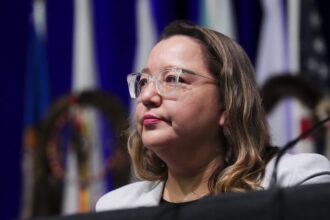The air in Winnipeg’s RBC Convention Centre crackled with anticipation this morning as hundreds of First Nations chiefs and delegates from across Canada gathered for the 2025 Annual Assembly of First Nations (AFN). This year’s summit arrives at a critical juncture for Indigenous communities facing unprecedented challenges in housing, resource management, and self-governance rights.
“We have a busy agenda ahead that reflects the urgent priorities of our communities,” said National Chief Cindy Woodhouse in her opening address. “From the ongoing housing crisis to protecting treaty rights, this gathering represents our collective determination to advance meaningful solutions for our people.”
The five-day assembly marks the first major gathering since the federal government’s controversial revision of its Indigenous rights framework earlier this year, which many chiefs criticized for falling short of true nation-to-nation partnership. Attendees at today’s sessions expressed a mix of cautious optimism and resolute determination.
Chief Jonathan Solomon of Kashechewan First Nation traveled from northern Ontario to highlight his community’s infrastructure crisis. “We’re still living with boil water advisories and overcrowded housing while government promises remain unfulfilled,” Solomon told reporters. “This gathering is about accountability and pressing for concrete action, not more delays.”
A comprehensive Canada News survey released last week revealed that 63% of First Nations communities still face severe housing shortages, with waiting lists averaging 7-10 years for new homes. These statistics have intensified calls for a complete restructuring of Indigenous Services Canada’s housing programs.
Climate justice features prominently on this year’s agenda, with sessions dedicated to First Nations’ role in environmental protection and resource development. The assembly follows several landmark court decisions that have strengthened Indigenous rights regarding resource projects on traditional territories.
“Our relationship with the land isn’t just about economics—it’s about our identity and responsibility as stewards,” explained Chief Judy Wilson from British Columbia. “The decisions we make this week will shape how we protect our territories for generations to come.”
Economic sovereignty discussions have drawn particular interest, with specialized sessions on Indigenous-led financial institutions and opportunities within Canada’s evolving business landscape. The AFN’s economic development portfolio has reported a 27% increase in Indigenous-owned businesses nationwide since 2022, though access to capital remains a significant barrier.
Federal Minister of Indigenous Services Patricia Hajdu is scheduled to address the assembly tomorrow, with many chiefs preparing pointed questions about the government’s reconciliation commitments. Political analysts from CO24 Politics note that with federal elections on the horizon, the government’s response to this assembly could significantly impact Indigenous voter engagement.
Youth participation has notably increased at this year’s assembly, with dedicated forums for emerging leaders under 30. Nineteen-year-old delegate Sarah McLeod from Membertou First Nation emphasized the importance of intergenerational dialogue: “Our elders carry wisdom and history, but it’s my generation that must navigate the future we’re creating together.”
The assembly will conclude Friday with voting on key resolutions expected to influence national Indigenous policy directions. Major items include proposed reforms to child welfare systems, education funding models, and a comprehensive approach to implementing the United Nations Declaration on the Rights of Indigenous Peoples.
As this pivotal gathering unfolds in Winnipeg, the fundamental question emerges: Will this assembly finally bridge the persistent gap between government promises and the lived realities of First Nations communities, or will it become yet another chapter in Canada’s long history of unfulfilled commitments to Indigenous peoples?










